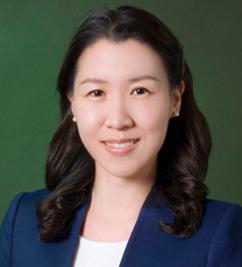Several WIDA researchers were awarded the Jamal Abedi Best Paper Award at the American Educational Research Association’s (AERA) Annual Meeting recently in Chicago.

WIDA is housed in the Wisconsin Center for Education Research (WCER) at UW–Madison’s School of Education. WIDA advances academic language development for culturally and linguistically diverse students.
This honor is from AERA’s Inclusion and Accessibility in Educational Assessment special interest group (SIG).
Alicia Kim, Jason Kemp, Mark Chapman, and H. Gary Cook were honored for their paper, “Use of Universal Tools Embedded in Assessments: Grades 4-12 English Learners With and Without Disabilities,” in Sage Journal’s “Language Testing.” Another co-author includes Meltem Yumsek from the Turkish Ministry of Education.

Kim research interests include language assessment, child bilingualism, second language literacy development, and computer-assisted language learning. She currently conducts validation research of ACCESS and other WIDA language assessments. Kemp is a researcher on the WIDA Assessment Team. He participates in research projects that support multilingual learners and their educators, with duties including contributing to the development of English and Spanish language proficiency tests.

Chapman is the Senior Assessment Innovation Manager at WIDA. His work focuses on developing new language proficiency tests for K-12 English learners in US public schools and international schools. Cook is a senior research fellow working with WIDA and attached to WCER. His recent research and publication interests have focused on the relationship between English language proficiency and content assessments, standards alignment, policy issues associated with English learner accountability in US K-12 schools, and in using growth models to address key educational questions for English language learners.

Their paper states that, “English language proficiency (ELP) assessments must adhere to universal design principles and incorporate universal tools, designed to increase accessibility for all ELs, including those with disabilities.”
“The current research aims to address the gap in the literature by investigating how ELs utilize universal tools embedded in ELP assessments and whether these tools provide the intended support to this underserved population,” Kim, Kemp, and co-authors add. “In detail, this study examines the activation of universal tools embedded in an online ELLP assessment by Grades 1-12 EL’s with and without disabilities.”